[Note: ExpertPhotography is supported by readers. Product links on ExpertPhotography are referral links. If you use one of these and buy something, we make a little bit of money. Need more info? See how it all works here.]
12 Family Photoshoot Tips for Better Photos
Here are 12 tips to help you start family portrait photography successfully.
1. Plan Activities and Actions to Make Posing Easier
If your clients enjoy themselves, you are more likely to take inspiring family photos. You might find a family experienced in photoshoots who like posing in front of the camera. But it is not common. Posing is not natural for most people. Some family members (if not everyone) might feel a bit uncomfortable. This discomfort appears in photos and makes them look fake. So instead of directing a pose, plan a session with activities for them to do or actions to perform. Ask them to walk, run, dance, or play. Have them lean on a wall or hide behind a tree and peek out from the sides. You could ask them to hug each other, make shapes with their bodies, play games, etc. Take candid photos while the family is having fun. Your images will look beautiful. And they will also remind them of the great time they spent together.
2. Position Families in the Right Light to Avoid Unwanted Shadows
Avoid having the family face the sun or strong light sources. Many still believe that taking photos with the sun at the back of the subject is not right. You might think that the sun in front of people posing offers more light. But the results can be extremely unflattering. Ugly shadows appear under their eyebrows, nose, and neck. Direct sunlight is also not ideal. That’s because it’s “hard light” rather than “soft light.” It makes the skin look older and less smooth as it enhances small flaws. Plus, the family will be annoyed by the light shining in their eyes. They will either close their eyes or squint. To avoid all this, have them turn around. Or, to avoid direct sunlight, shoot family portraits in soft lighting conditions. You can get great images if you choose a time of the day that is not too close to midday. Capture the family during a nice sunset and see how much it softens the light. Or have the photoshoot in a shadier environment or on a cloudy day.
Use Light Metering to Ensure the Best Family Portrait Exposure
If you choose a shady spot, pay attention to exposure settings. Take into account the backlight entering your sensor. If you are shooting in semi-automatic mode, there is a trick to meter the image. Use Matrix Metering with Nikon Cameras or Evaluative Metering with Canon cameras. Then overexpose by +0.3. For manual shooting, you can meter the light using the spot meter on the family. In both cases, the family will be well exposed and the background overexposed. The most important thing here is the family. So a slightly washed-out background is a fair price to pay for family members to look their best.
3. Communicate and Engage With the Family for an Enjoyable Session
Most families don’t pose for professional photos often. They are not used to it and might feel a bit awkward. You want natural-looking family photos. So take special care to make the family feel comfortable with you. Besides the technical aspects of photography, this is very important. I play and talk with the kids as much as I can. With the adults, I start a conversation about random subjects. I try to discuss something they like. And we go from there. I ask couples questions like how couples met each other. And I encourage them to tell their story. This is a great step towards building rapport. Ask family members personal but discreet questions. I avoid potentially stressful subjects such as politics or work. I prefer talking about travel, holidays, or hobbies. I also clarify that if they don’t like a pose or feel strange doing something, they don’t have to do it. All they need to do is say the word. And we’ll do something else. Knowing they are in control and won’t be forced to pose builds trust and makes them more comfortable. Establishing a good relationship is important because you are a stranger to them. And they need to show personal moments and share intimate feelings with you for the best photos.
4. Pay Attention to the Surroundings for a Safe Photoshoot
Before pressing the camera’s shutter release, you must take care of many things. You must consider composition and camera settings for the right exposure. And you should check that your models are feeling fine. It’s easy to forget that you must be aware of your location. For example, if you are at the beach, you don’t want them to get their shoes wet by a surprise wave. Or you can’t tell them to move back without first checking if they will collide with something. Always pay attention to the environment. It gets natural the more you do it.
5. Tell the Family How to Pose to Get the Look You Want
There’s always a chance that family members interpret your posing directions differently. If this happens, the situation can turn into a mess. Each person may do different things. To avoid this, give simple instructions. And try to make them as precise and clear as you can. Show them how to stand, where to stand, and so on. You can even demonstrate poses yourself first if you can. For example, I always show my clients how to lean against the wall by doing it myself first. If you need to add instructions, use short sentences. Avoid saying “to the right” or “to the left.” Your clients won’t know if you are talking about your right or their right. Reference objects or landmarks around them instead. Say, “Turn towards the tree,” or “Look at the sea.”
6. Create Timeless Images With Simple, Classic Editing Styles
Family photos are meant to last for a long time. They are the images we want to keep and look at years later and show to the grandkids. For that reason, I recommend avoiding trendy editing styles and effects. These will probably look weird or unappealing 20 years down the line. The aim is to create timeless images. So stick to classic editing styles and simplicity. This doesn’t mean you can’t add personal touches. But before finishing editing, ask yourself if you will like this photo 20 years from now. If the answer is yes—perfect! If not, try to simplify the editing.
7. Be Prepared to Make Changes and Open Minded About the Results
“Going with the flow” is especially true if you work with kids in a family photoshoot. You might have a list of photos to take that, in your head, work really well. But maybe the family doesn’t like them much. Or perhaps the kids feel like doing something else. If that’s the case, you must adjust to the situation. It is always better to take a beautiful unplanned photo showing a happy family… rather than a forced one where you can see they’re uncomfortable.
8. Use Burst Mode to Capture the Best Moments
Every photographer knows that terrible feeling… when you take a group photo, only to later realize there’s something wrong with it. Someone had their eyes closed. Or a person wasn’t ready for the picture to be taken. So with family photography, don’t put all your eggs in one basket. Take several photos at once. It increases the chance that everyone is coordinated and looks their best. You can set the camera to shoot in burst mode to take a sequence of images. Think of it like a sporting event! And adjust the shutter speed to avoid unwanted blur due to movement. Around 1/250 s is a good starting point for this type of photography.
9. Use the Environment to Add a Little Extra to Your Photos
It is not unusual to feel weird posing in front of a camera in the middle of a park or a street. When it comes to outdoor family photos, you can use objects to help them overcome any awkwardness. Tell them to lean on a tree or a wall, sit on a bench, or even on the floor. (First, make sure it’s safe and clean enough.) Keep an eye out for any natural frames. They add a bit more to the composition of the image. Location scouting that involves the family is a great idea. You can choose a location together that they like based on their memories. It can be where the couple got engaged, where they first met, or where their children took their first steps. Your family portraits will be more joyful if they feel connected to the place.
10. Avoid Narrow Apertures to Avoid Unfocused Family Members
Portraits have a special vibe when you get your models sharp and the background blurry. You can create this effect by setting a narrow aperture value (a small f-stop number). Using an aperture of around f/2.8 gives you a beautiful blur. But there’s a risk to it. If your models move, they might be partially or completely out of focus. This is also true for specific body parts of the same person. If your model looks to the side, one eye could be in focus while the other is blurry.
If you want the whole family to appear sharp in the photo, you may need to increase the aperture number. Choose a value around f/8. You might not get the strong background blur you want, but everybody in the family will come out sharp.
11. Offer Outfit Advice to Bring Harmony to Family Pictures
One of the most common questions before the photo sessions is, “What should we wear?” Clothing should look coordinated to convey a feeling of togetherness. This doesn’t mean family members have to dress in identical clothes. It means wearing the same style of clothes. They can wear casual or elegant clothes with similar colors or shades. I always recommend that they wear natural shades and avoid bright colors that stand out. A person wearing the latter will get all the attention in the photo. That’s not ideal unless this is what they want. The same can happen with big illustrations or fonts on T-shirts. They can be quite eye-catching. Unless it adds to the photo, avoid them.
12. Meet at a Convenient Time for the Kids to Avoid Hard Times With Them
This might complicate the organization process. But respecting the natural rhythm of kids makes it worth it. Tired, sleepy, or hungry kids are difficult to handle. Having them cooperate or make them look happy for a photo is almost impossible. I usually try to combine a good time for the kids and a time frame with beautiful light. This means I sometimes arrange the photo sessions early in the morning. The kids are awake and have had breakfast. And I can use the morning’s golden hour. But each family is different. And their schedules will be different. So I adjust the photo session for each situation.
Conclusion
With a family photoshoot, you must show your best technical and social skills. You must do several things. Adjust the camera settings to get a good exposure. Learn how to use backlight and natural light. Adjust the depth of field to get the desired effects, and so on. You also need to have the right equipment for family photography. But above all, you need to make the family feel comfortable to show their love for each other! If you keep all these points in mind, your photos will become wonderful memories for the family. Kids grow us so fast. So besides being fun, your family portraits will freeze a little part of their life they can reflect on!
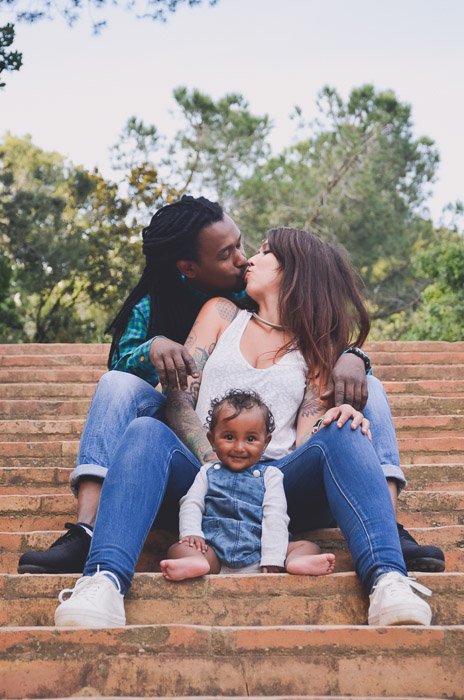


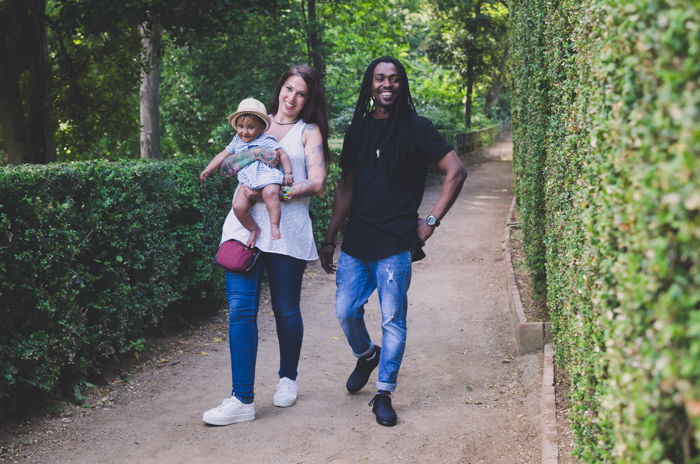
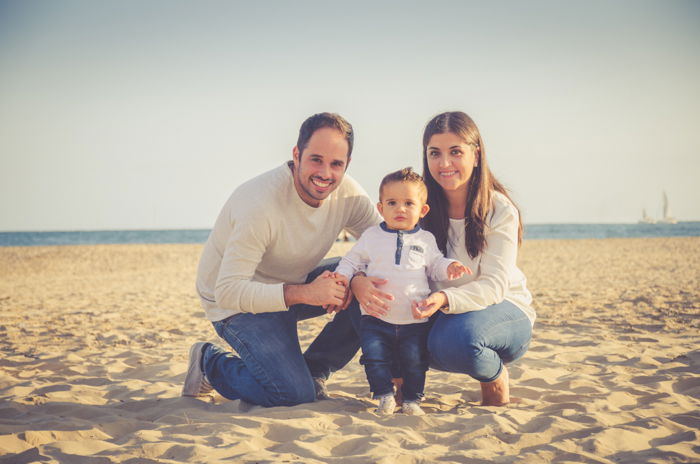
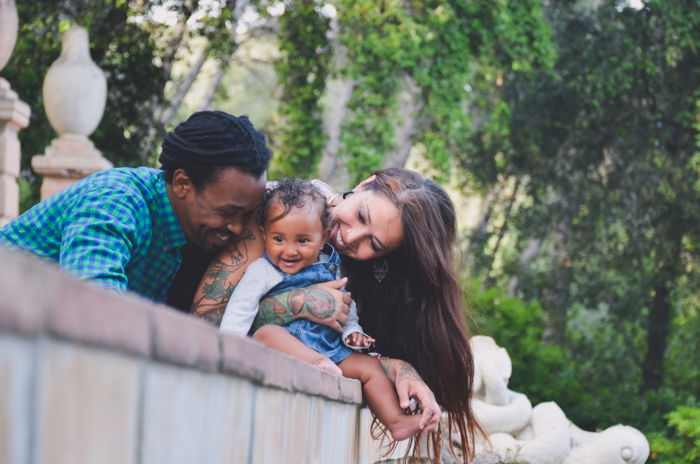
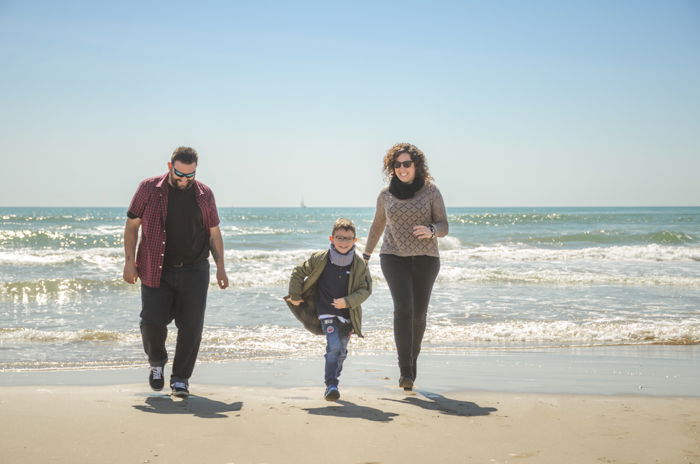
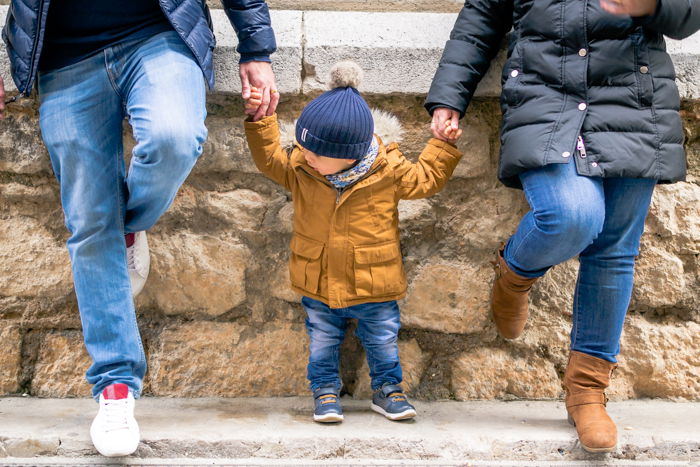
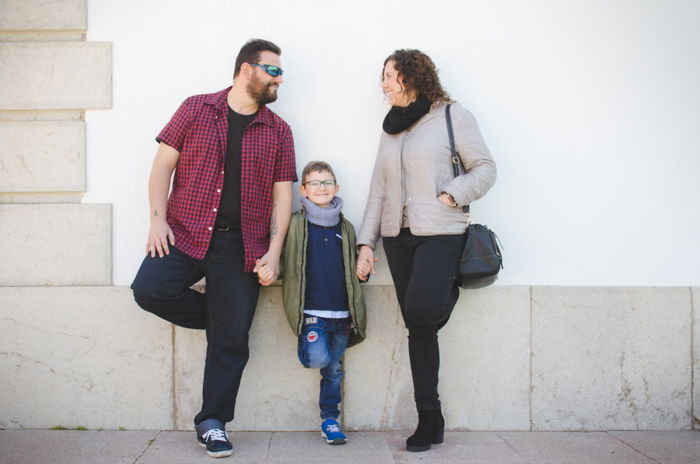
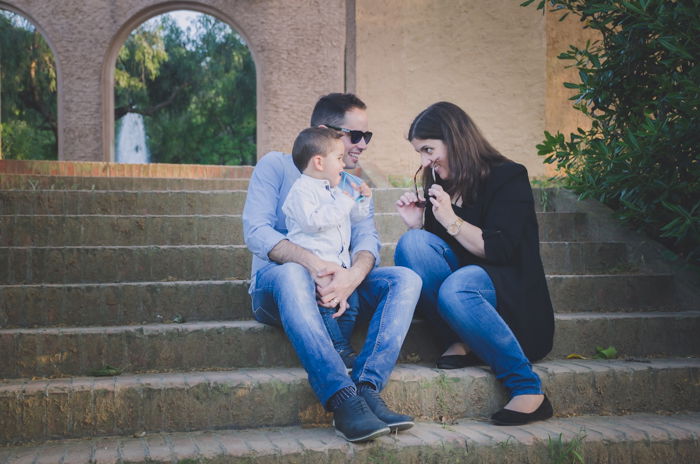
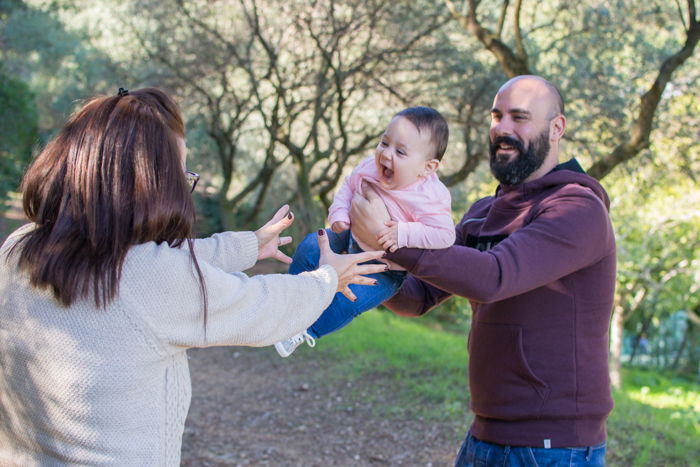
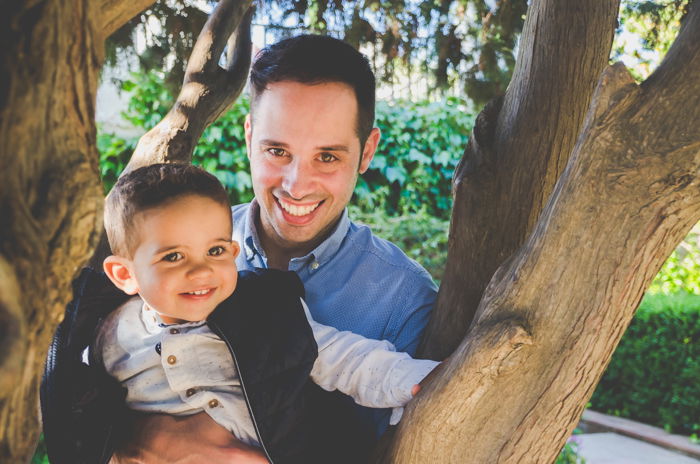
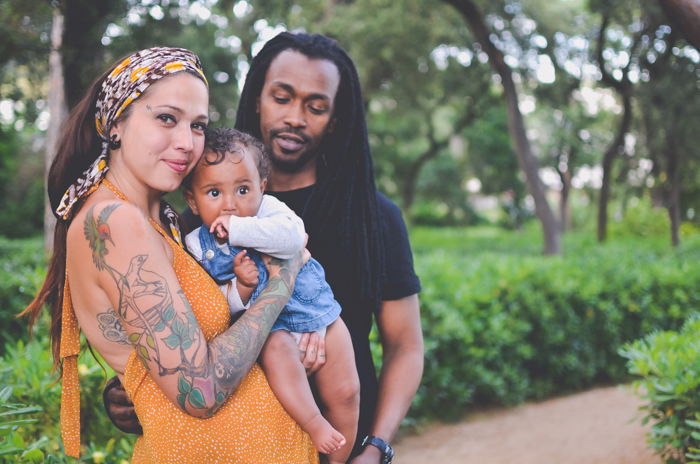
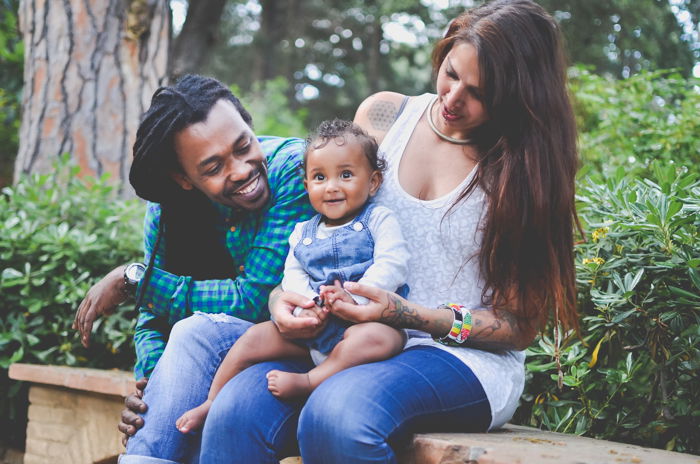
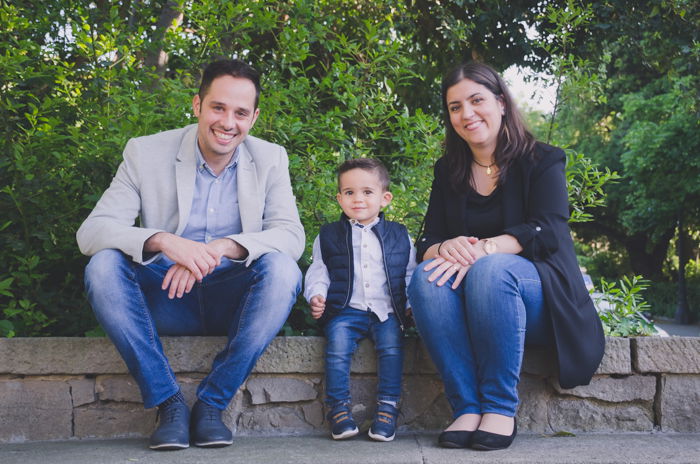
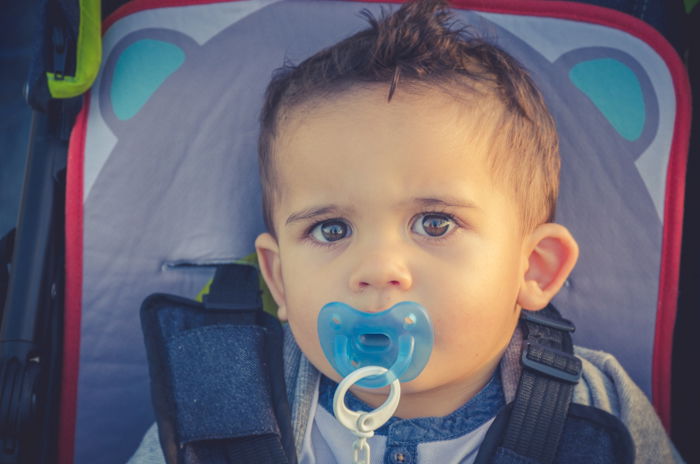
title: “12 Family Photoshoot Tips For Better Photos” ShowToc: true date: “2023-01-06” author: “Ryan Caldwell”
[Note: ExpertPhotography is supported by readers. Product links on ExpertPhotography are referral links. If you use one of these and buy something, we make a little bit of money. Need more info? See how it all works here.]
12 Family Photoshoot Tips for Better Photos
Here are 12 tips to help you start family portrait photography successfully.
1. Plan Activities and Actions to Make Posing Easier
If your clients enjoy themselves, you are more likely to take inspiring family photos. You might find a family experienced in photoshoots who like posing in front of the camera. But it is not common. Posing is not natural for most people. Some family members (if not everyone) might feel a bit uncomfortable. This discomfort appears in photos and makes them look fake. So instead of directing a pose, plan a session with activities for them to do or actions to perform. Ask them to walk, run, dance, or play. Have them lean on a wall or hide behind a tree and peek out from the sides. You could ask them to hug each other, make shapes with their bodies, play games, etc. Take candid photos while the family is having fun. Your images will look beautiful. And they will also remind them of the great time they spent together.
2. Position Families in the Right Light to Avoid Unwanted Shadows
Avoid having the family face the sun or strong light sources. Many still believe that taking photos with the sun at the back of the subject is not right. You might think that the sun in front of people posing offers more light. But the results can be extremely unflattering. Ugly shadows appear under their eyebrows, nose, and neck. Direct sunlight is also not ideal. That’s because it’s “hard light” rather than “soft light.” It makes the skin look older and less smooth as it enhances small flaws. Plus, the family will be annoyed by the light shining in their eyes. They will either close their eyes or squint. To avoid all this, have them turn around. Or, to avoid direct sunlight, shoot family portraits in soft lighting conditions. You can get great images if you choose a time of the day that is not too close to midday. Capture the family during a nice sunset and see how much it softens the light. Or have the photoshoot in a shadier environment or on a cloudy day.
Use Light Metering to Ensure the Best Family Portrait Exposure
If you choose a shady spot, pay attention to exposure settings. Take into account the backlight entering your sensor. If you are shooting in semi-automatic mode, there is a trick to meter the image. Use Matrix Metering with Nikon Cameras or Evaluative Metering with Canon cameras. Then overexpose by +0.3. For manual shooting, you can meter the light using the spot meter on the family. In both cases, the family will be well exposed and the background overexposed. The most important thing here is the family. So a slightly washed-out background is a fair price to pay for family members to look their best.
3. Communicate and Engage With the Family for an Enjoyable Session
Most families don’t pose for professional photos often. They are not used to it and might feel a bit awkward. You want natural-looking family photos. So take special care to make the family feel comfortable with you. Besides the technical aspects of photography, this is very important. I play and talk with the kids as much as I can. With the adults, I start a conversation about random subjects. I try to discuss something they like. And we go from there. I ask couples questions like how couples met each other. And I encourage them to tell their story. This is a great step towards building rapport. Ask family members personal but discreet questions. I avoid potentially stressful subjects such as politics or work. I prefer talking about travel, holidays, or hobbies. I also clarify that if they don’t like a pose or feel strange doing something, they don’t have to do it. All they need to do is say the word. And we’ll do something else. Knowing they are in control and won’t be forced to pose builds trust and makes them more comfortable. Establishing a good relationship is important because you are a stranger to them. And they need to show personal moments and share intimate feelings with you for the best photos.
4. Pay Attention to the Surroundings for a Safe Photoshoot
Before pressing the camera’s shutter release, you must take care of many things. You must consider composition and camera settings for the right exposure. And you should check that your models are feeling fine. It’s easy to forget that you must be aware of your location. For example, if you are at the beach, you don’t want them to get their shoes wet by a surprise wave. Or you can’t tell them to move back without first checking if they will collide with something. Always pay attention to the environment. It gets natural the more you do it.
5. Tell the Family How to Pose to Get the Look You Want
There’s always a chance that family members interpret your posing directions differently. If this happens, the situation can turn into a mess. Each person may do different things. To avoid this, give simple instructions. And try to make them as precise and clear as you can. Show them how to stand, where to stand, and so on. You can even demonstrate poses yourself first if you can. For example, I always show my clients how to lean against the wall by doing it myself first. If you need to add instructions, use short sentences. Avoid saying “to the right” or “to the left.” Your clients won’t know if you are talking about your right or their right. Reference objects or landmarks around them instead. Say, “Turn towards the tree,” or “Look at the sea.”
6. Create Timeless Images With Simple, Classic Editing Styles
Family photos are meant to last for a long time. They are the images we want to keep and look at years later and show to the grandkids. For that reason, I recommend avoiding trendy editing styles and effects. These will probably look weird or unappealing 20 years down the line. The aim is to create timeless images. So stick to classic editing styles and simplicity. This doesn’t mean you can’t add personal touches. But before finishing editing, ask yourself if you will like this photo 20 years from now. If the answer is yes—perfect! If not, try to simplify the editing.
7. Be Prepared to Make Changes and Open Minded About the Results
“Going with the flow” is especially true if you work with kids in a family photoshoot. You might have a list of photos to take that, in your head, work really well. But maybe the family doesn’t like them much. Or perhaps the kids feel like doing something else. If that’s the case, you must adjust to the situation. It is always better to take a beautiful unplanned photo showing a happy family… rather than a forced one where you can see they’re uncomfortable.
8. Use Burst Mode to Capture the Best Moments
Every photographer knows that terrible feeling… when you take a group photo, only to later realize there’s something wrong with it. Someone had their eyes closed. Or a person wasn’t ready for the picture to be taken. So with family photography, don’t put all your eggs in one basket. Take several photos at once. It increases the chance that everyone is coordinated and looks their best. You can set the camera to shoot in burst mode to take a sequence of images. Think of it like a sporting event! And adjust the shutter speed to avoid unwanted blur due to movement. Around 1/250 s is a good starting point for this type of photography.
9. Use the Environment to Add a Little Extra to Your Photos
It is not unusual to feel weird posing in front of a camera in the middle of a park or a street. When it comes to outdoor family photos, you can use objects to help them overcome any awkwardness. Tell them to lean on a tree or a wall, sit on a bench, or even on the floor. (First, make sure it’s safe and clean enough.) Keep an eye out for any natural frames. They add a bit more to the composition of the image. Location scouting that involves the family is a great idea. You can choose a location together that they like based on their memories. It can be where the couple got engaged, where they first met, or where their children took their first steps. Your family portraits will be more joyful if they feel connected to the place.
10. Avoid Narrow Apertures to Avoid Unfocused Family Members
Portraits have a special vibe when you get your models sharp and the background blurry. You can create this effect by setting a narrow aperture value (a small f-stop number). Using an aperture of around f/2.8 gives you a beautiful blur. But there’s a risk to it. If your models move, they might be partially or completely out of focus. This is also true for specific body parts of the same person. If your model looks to the side, one eye could be in focus while the other is blurry.
If you want the whole family to appear sharp in the photo, you may need to increase the aperture number. Choose a value around f/8. You might not get the strong background blur you want, but everybody in the family will come out sharp.
11. Offer Outfit Advice to Bring Harmony to Family Pictures
One of the most common questions before the photo sessions is, “What should we wear?” Clothing should look coordinated to convey a feeling of togetherness. This doesn’t mean family members have to dress in identical clothes. It means wearing the same style of clothes. They can wear casual or elegant clothes with similar colors or shades. I always recommend that they wear natural shades and avoid bright colors that stand out. A person wearing the latter will get all the attention in the photo. That’s not ideal unless this is what they want. The same can happen with big illustrations or fonts on T-shirts. They can be quite eye-catching. Unless it adds to the photo, avoid them.
12. Meet at a Convenient Time for the Kids to Avoid Hard Times With Them
This might complicate the organization process. But respecting the natural rhythm of kids makes it worth it. Tired, sleepy, or hungry kids are difficult to handle. Having them cooperate or make them look happy for a photo is almost impossible. I usually try to combine a good time for the kids and a time frame with beautiful light. This means I sometimes arrange the photo sessions early in the morning. The kids are awake and have had breakfast. And I can use the morning’s golden hour. But each family is different. And their schedules will be different. So I adjust the photo session for each situation.
Conclusion
With a family photoshoot, you must show your best technical and social skills. You must do several things. Adjust the camera settings to get a good exposure. Learn how to use backlight and natural light. Adjust the depth of field to get the desired effects, and so on. You also need to have the right equipment for family photography. But above all, you need to make the family feel comfortable to show their love for each other! If you keep all these points in mind, your photos will become wonderful memories for the family. Kids grow us so fast. So besides being fun, your family portraits will freeze a little part of their life they can reflect on!















